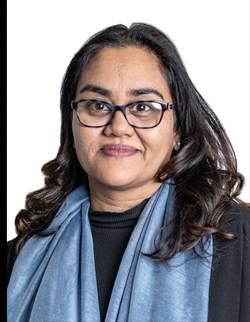The Matric Class of 2020 is entering the final stretch of their school careers and their exams, after facing down one of the most disruptive years Grade 12’s have arguably ever faced as a collective. While the pressure is slowly lifting, and the end is in sight, now is the time to double down and give the final push to achieve to the best of their ability, an education expert says.
“This year has been so hard, and brought up so many different challenges for Matrics, and they must be applauded for getting this far given all the uncertainty, missed school days for many, and losing out on all the big events and milestones that make this year so special,” says Natasha Madhav, Senior Head of Programme: Faculty of ICT at The Independent Institute of Education, SA’s largest and most accredited private higher education provider.
“You have already demonstrated that you could get this far and deal with everything Covid and the lockdowns have thrown at you. You are already set up for success with your newly developed resilience and grit, so use these new skills to maintain your momentum in coming days to ensure you score every single mark you are able to in your remaining papers. Don’t drop your resolve now, but rather give it your all right to the end,” Madhav says.
She points out that with most of the papers behind students, it is mostly the comparatively less challenging subjects remaining, which may lead Matrics to approach the next few weeks with a more relaxed attitude towards revising.

Senior Head of Programme Faculty of ICT at The Independent Institute of Education
“But remember that every mark counts toward improving your aggregate, and therefore your options for your future, whether in terms of which higher education institution you can gain access to, or whether you can gain access to your chosen qualification. Given the massive competition for limited opportunities, even small differences between candidates can have a substantial impact on outcomes,” she says.
Madhav says the most important thing to combat now is fatigue – physical and emotional – to ensure you finish strong.
“Don’t let your mind play games with you – try to regain your focus and remember the big picture every single day until you hand in your last paper. Make sure you get enough fresh air and exercise, take regular short breaks that don’t involve a screen, and aim for small wins that compound.”
Madhav says that regardless of performance in previous papers, whether it was good or less than satisfactory, a student’s performance over these next 2 weeks can still make a positive impact on their overall results.
“If you did well in previous papers, now is not the time to relax and let the chips fall where they may. Aim to do as well as possible on your remaining papers, which may broaden your prospects in future, potentially opening up opportunities you may not even have been aware of.
“On the other hand, if you didn’t do as well as you have hoped until now, you have to let that go and focus on what you can still make happen. Don’t panic, because every mark makes a difference and there is still opportunity for you to improve on your general result,” she says.
Madhav says that students should apply a single-minded, laser-like focus to their studies right now, and leave their hopes and anxieties for the future to one side while they complete their exams.
“This will allow you to start investigating your future path armed with the best results you could achieve, and to discover all the interesting and exciting study and career paths that have been emerging in recent years for which you may now likely qualify as a result of your final determination and drive. Greater options don’t equate to lessened competition, so putting in the work during these final days can make all the difference in future.”

The Independent Institute of Education (The IIE) is a division of the JSE-listed ADvTECH Group, Africa’s largest private education provider. The IIE is the largest, most accredited registered private higher education institute in South Africa, and the only one accredited by The British Accreditation Council (BAC), the independent quality assurance authority that accredits private institutions in the UK. By law, private higher education institutions in South Africa may not call themselves Private Universities, although registered private institutions are subject to the sameregulations, accreditation requirements and oversight as Public Universities.

 Kaboutjie SA Mommy Blogs by Lynne Huysamen
Kaboutjie SA Mommy Blogs by Lynne Huysamen




